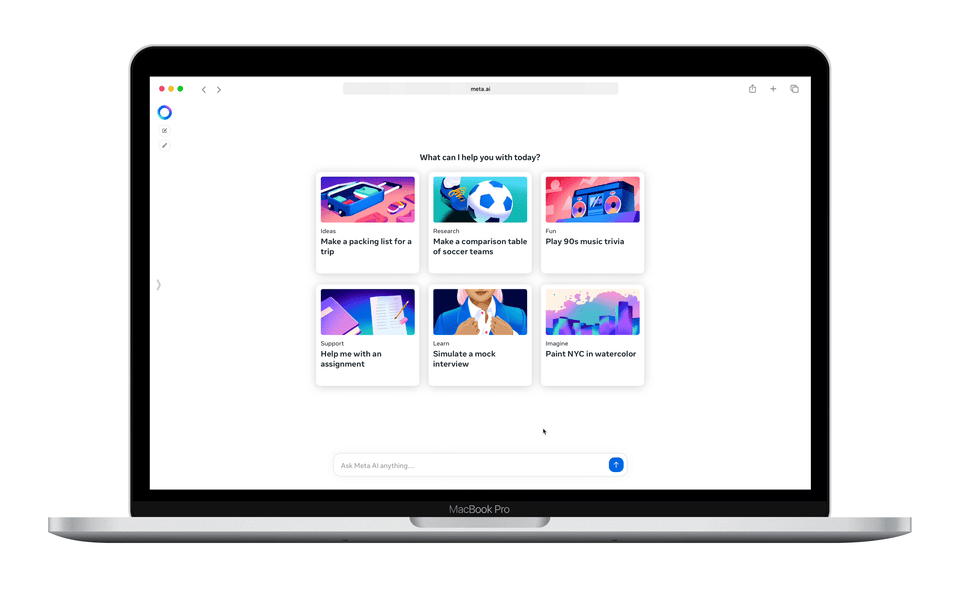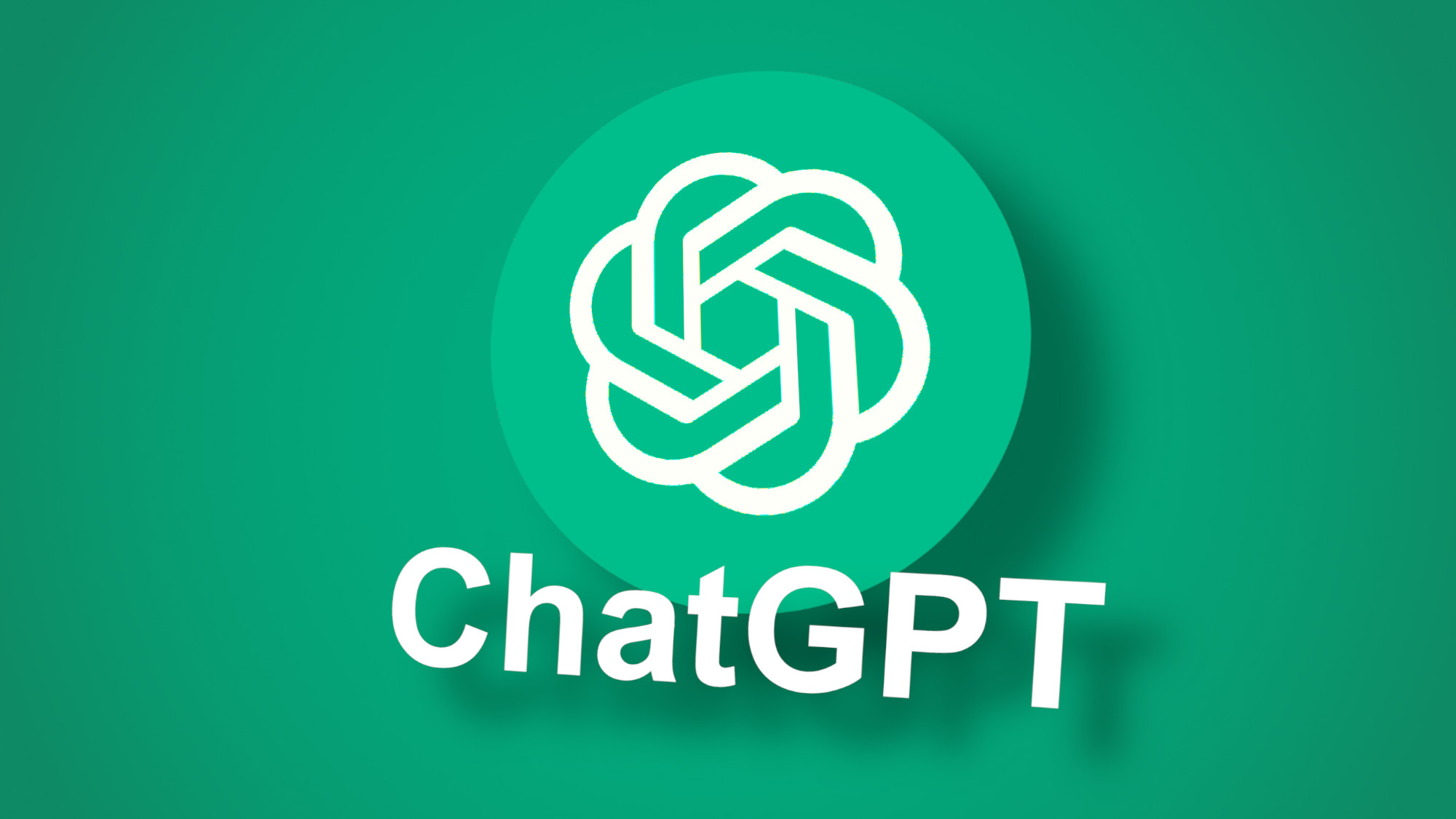The Mark Zuckerberg-fronted company that brought you Facebook, Instagram, Whatsapp, and the Quest VR headsets, Meta, has unveiled a sparkling new website. It’s just like that other popular site millions of people use daily, but this one wants to profiteer from your personal data more.
No, it’s not the flash-in-the-pan X (née Twitter) rival Threads, but Meta AI Assistant, a Large Language Model (LLM) treading the footprints of the chatbots that came before it such as Google Bard (now Gemini), Microsoft Bing AI (now Copilot), and OpenAI’s ChatGPT. Its goal? Well, according to Meta CEO Mark Zuckerberg, that’s to become “The most intelligent AI assistant that people can freely use across the world.”
They say that the definition of insanity is doing the same thing over and over again while expecting different results. However, while both Threads and Meta AI Assistant are clearly challengers to other incredibly popular and well-established services, they are two completely different beasts. But, is the latter destined for the same Icarus-like fate after flying too close to the sun? Maybe.
Remember Threads? No? — you’re not alone
Sure, Threads isn’t actually dead—not yet anyway. However, the service has seen a substantial drop-off from its launch window hype that saw it become the fastest-growing app ever by reportedly gaining over 100 million users in just five days.
At its peak in July 2023, Threads laid claim to 49.3 million daily active users. As of August 2023, that number was estimated to be closer to 10.3 million daily active users, who, on average, spent around three minutes a day on the app.
Let’s compare and contrast that to the service it was built to topple. Based on the same August 2023 data, Twitter/X was estimated to have a daily active user count of 100+ million, with users estimated to spend an average of 30.9 minutes per day on the app.

Even during Twitter’s most turbulent moments, including a divisive new owner and a complete rebranding, Meta’s alternative failed to Thread(s) the needle. All of that, while being partnered with sister app Instagram, a platform with over 2 billion users in total to draw from.
What does this have to do with Meta AI? Well, for starters, while ambitious, Threads was practically a direct copycat of Twitter/X. And, if you were to check out Meta AI’s brand new homepage, you’d find that it’s also looking like a direct copycat of the much more popular and well-established ChatGPT.
Meta’s intentions are clear. It wants its AI to be right in the thick of the AI assistant conversation even if that means brashly challenging the biggest name on the scene. And that sounds more than a little familiar.
Of course, that’s not to say that Meta AI doesn’t have any chance at all. It’s actually quite an impressive service, both freely available and accessible across multiple Meta-owned platforms.
Meta AI will be available on Facebook, Instagram, WhatsApp and Messenger, as well as having it’s own website for wider access. That gives Meta AI top billing in front of an audience of billions—prime real estate that other services could only dream of.
However, it’s not just marketing that will grant Meta success in its AI ventures. Meta AI is backed by the company’s latest Llama 3 model, an 8B and 70B parameter state-of-the-art LLM that’s capable of chatbot-like interaction, image/animation generation, and seamless search integration.

I don’t want to take too much away from Meta on this one. Meta AI seems like a genuinely useful tool, designed in a way that provides existing Meta Account owners with AI-powered, in-app solutions to cater to many needs.
In fact, I expect Meta AI to get off to a pretty compelling start, and I wouldn’t be surprised if this LLM garners plenty of attention and engagement in the first few weeks of its launch. Much like Threads did.
The frustrating thing for Meta when it came to Threads, is that it barely impacted Twitter/X as it hoped to. Instead of drawing people away from the Elon Musk-owned social media platform, it simply siphoned a slight amount of interest from Instagram users.

ChatGPT is estimated to net around 1.8 billion visits per month, and that’s just through its website. OpenAI’s chatbot is also available on iOS and Android, and helping to power various products like the Solos AirGo 3 Smart Glasses and more recently the Nothing Ear and Nothing Ear (a).
Regardless of Meta AI’s backing or potential platforms, that’s a considerable hill to climb if it hopes to dethrone ChatGPT as the most popular AI assistant available today. And just as when Threads challenged Twitter/X, Meta may have bitten off more than it can chew in challenging the chatbot’s overwhelming popularity.
Outlook
Threads opened its doors to a groundswell of interest, but what else would anyone expect when a service is directly linked to one of the most popular social media platforms ever? As such, it’s only logical to assume that Meta AI will follow suit, especially being linked to several other of Meta’s biggest properties as well as Instagram
However, in spite of that, Threads was unable to retain users—even after giving its user base the instant gratification of having all of their followers translate to the new platform. Some of Threads’ most popular accounts at launch now lay completely dormant, regardless of their millions of followers.
Meta AI could very well be no different. Strapped to the rocket that is Facebook, WhatsApp, and Instagram’s combined 7.7 billion user base and pointed at the moon, I expect a hard and fast debut followed by an eventual failure to leave orbit (though not a failure as a feature).
There’s a chance that Threads’ instant surge in users had more to do with “getting in on the ground floor” of a potentially popular social media platform. There’s also the possibility that Threads is a slow-burn, and I’ll be left with egg on my face in a few years time when Meta AI revolutionizes the kingdom of The Zuck.
However, what I do know is that tackling the incredible popularity and success of OpenAI’s ChatGPT will be no mean feat, and it will take more than thrusting your latest large language model in front of millions of faces to accomplish. Just ask Microsoft or Google if you don’t believe me.







